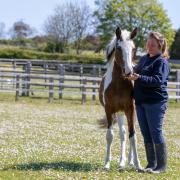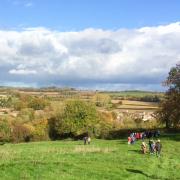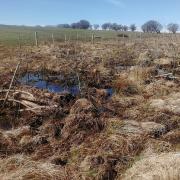Farmers considering investing in renewable energy projects should beware a number of pitfalls, according to speakers at a seminar last week at the Royal Bath and West Showground.
Farmers considering investing in renewable energy projects should beware a number of pitfalls, according to speakers at a seminar last week.
The event, held at the Royal Bath & West Showground, brought together experts from accountant Old Mill, land agent Carter Jonas and solicitor Burges Salmon. More than 100 farmers attended, testament to the soaring interest in renewable energy following the introduction of Feed in Tariffs earlier this year.
However, with such an immature industry, potential investors should be vigilant, as mistakes could prove extremely costly, said Mark Neath, associate director at Old Mill. “One of the biggest myths is that the energy generated is tax free. This is only the case where it is used in a residential home, including a farmhouse. Any energy which is used on the farm or sold into the National Grid is taxable.
"Reducing energy costs by generating and using your own electricity was clearly attractive – but farmers should be aware that this would also boost profits, and could push the business into a higher tax band. “Of course cutting costs and boosting income makes good business sense – but you should be prepared for the impact it could have on your tax status.
"Renewable energy projects could also attract Business Rates, and change land use away from agriculture. “This could mean a reduced single payment and, perhaps more importantly, the loss of valuable agricultural tax reliefs.”
Solicitor George Fellowes said the options being offered by developers ranged from the sublime to the ridiculous. Prices varied considerably, were often badly drawn up, and tied farmers in for long periods with no guarantee of success. There were also physical limitations on the number of large-scale schemes that could be connected to the grid in one area, and many developers had very little track record and financial resource.
With the current high level of Feed in Tariffs only guaranteed until April 2012, farmers and developers were rushing into projects without proper research, warned Thomas Ireland at Carter Jonas. Farmers who had tied into an option may therefore find themselves unable to do anything if a different possibility came up.
Sadly, horror stories where farmers had not been diligent in their research were all too common, said Mr Neath. “The over riding message is to seek professional advice on every aspect of a project before committing to anything.”
For more information contact Mark Neath on 01392 214641.


























